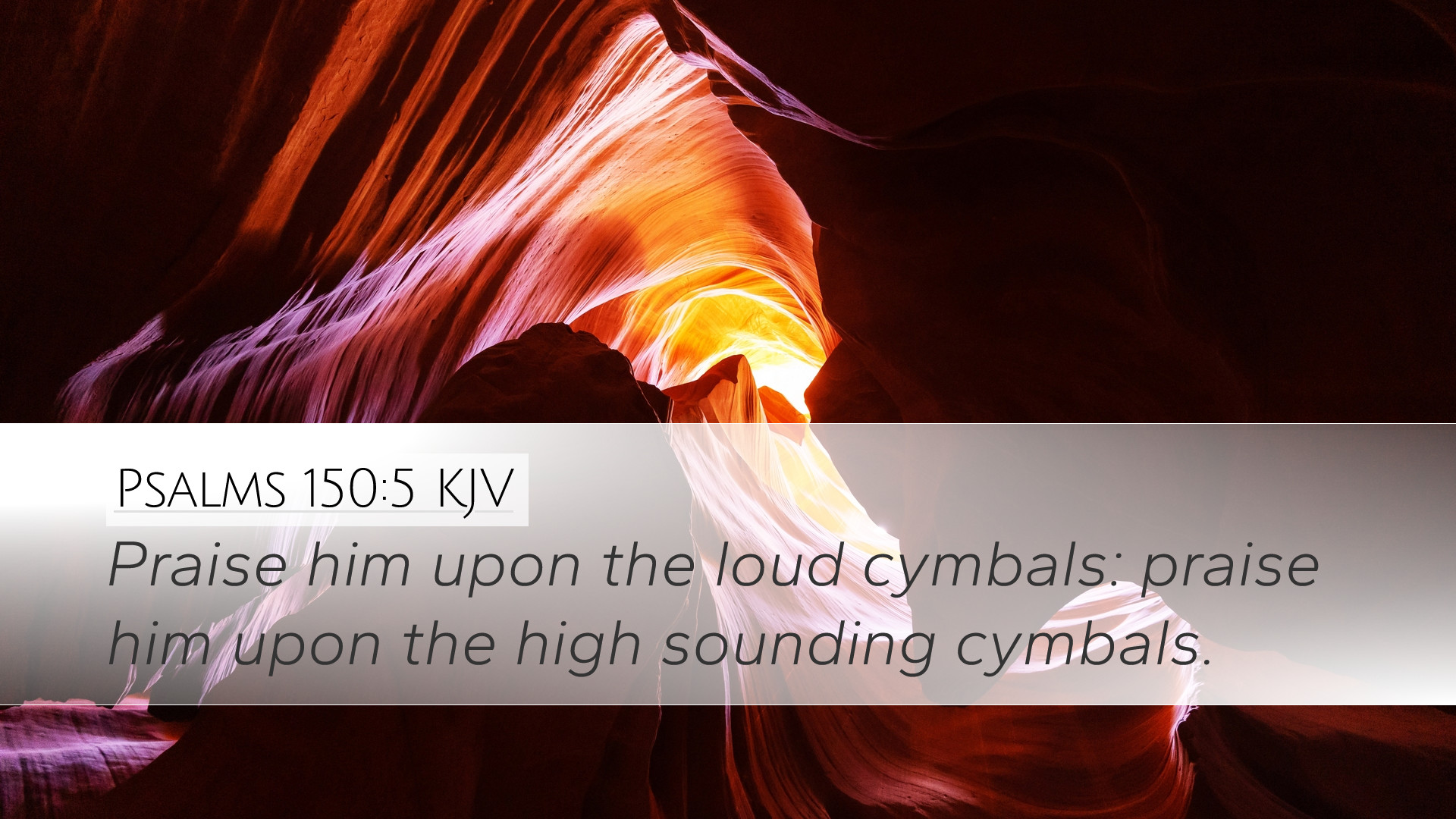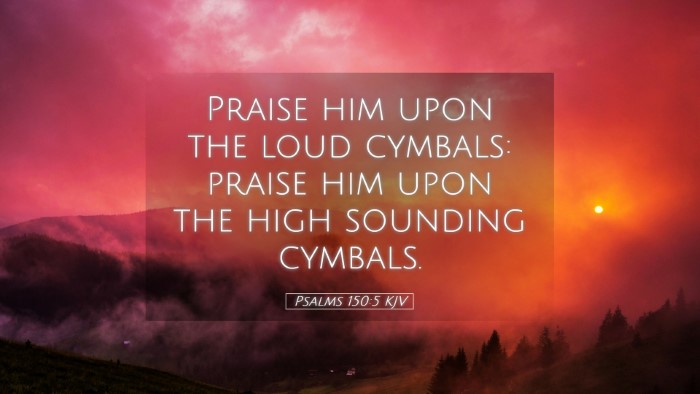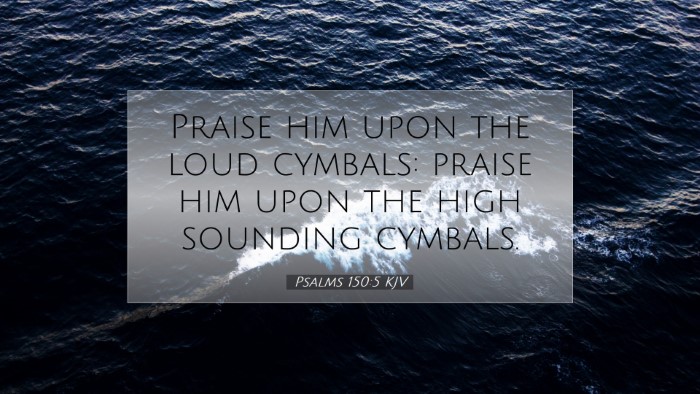Psalms 150:5 Commentary
Psalms 150:5: "Praise Him with sounding cymbals; praise Him with loud clashing cymbals!"
Introduction
The final Psalm in the book of Psalms encapsulates a universal call for worship. Psalm 150 is an invitation for all creation to worship God, emphasizing the use of various instruments in the celebration of divine praise. This verse particularly focuses on the lively and exuberant way in which praise should be given, signifying the importance of joy and vocal expressions in congregational worship.
The Context of Psalm 150
Psalm 150 serves as a conclusion to the entire Psalter, emphasizing themes of praise and worship. Its structure is straightforward but profound, calling upon everything that has breath to worship the Lord. The previous Psalms have often concentrated on lament, supplication, and reflection upon God’s character and actions, leading up to this crescendo of praise.
Interpretations from Public Domain Commentaries
-
Matthew Henry's Commentary
Henry notes that this Psalm is a “psalm of praise,” describing how it serves as an invitation to glorify God with all available means. He highlights that “sounding cymbals” and “clashing cymbals” depict a dynamic and fervent form of worship, emphasizing that the sound of worship should be vibrant and expressive. He suggests that these cymbals symbolize the clamor and joy of God's people as they engage in praise, reminding us that worship should not be silent or subdued.
-
Albert Barnes' Notes
Barnes establishes the significance of musical instruments in worship, asserting that they are a vital component that adds to the atmosphere of reverence and joy. He indicates that cymbals in particular serve to amplify the sound and contribute to a collective expression of worship. This verse particularly emphasizes that worship should come from the heart and be demonstrative. Barnes also invites believers to reflect on how they express their gratitude and adoration to God, suggesting that the loud praise depicted in this verse is intended to resonate with the joyous atmosphere of heavenly worship.
-
Adam Clarke's Commentary
Clarke provides insight into the Hebrew words used for cymbals, suggesting they imply different types of instruments that create varied sounds. He stresses that the directive to praise using cymbals is not merely about sound but about the heart's attitude toward worship. Clarke views this as a reminder that worship should not only be loud and expressive but deeply heartfelt. The sheer volume of sound expressed through the cymbals reflects a heart overflowing with gratitude and joy for God's grace and mercy.
Theological Significance of Praise
This verse reflects an essential theme in the theology of worship. Praise recognizes God's sovereignty and holiness while eliciting a response from His creation. By commanding the use of instruments, especially in a celebratory manner, the Psalm stresses the holistic nature of worship, which engages the mind, body, and spirit.
Moreover, the inclusion of “loud clashing cymbals” suggests that worship is not merely a private act but a communal celebration. It underscores the notion that believers are called to build one another up through worship, creating an environment filled with expressions of faith and delight in God.
Practical Applications for Worship Today
-
Embrace Vibrancy in Worship
This passage encourages congregations to embrace noisy and enthusiastic expressions of worship. Churches should create environments where congregants feel liberated to express their joy in Christ loudly, be it through clapping, singing, or playing instruments.
-
All-Inclusive Worship
Praise should be all-encompassing, welcoming all believers to participate regardless of their background or musical ability. Like the psalmist, churches should celebrate the diversity of expressions in worship.
-
Heart of Worship
While musical expression is essential, it is the heart that worship must ultimately flow from. This passage is a reminder to cultivate a personal attitude of gratitude and joy toward God outside of the worship setting.
-
Cultural Expression
Understanding that various cultures express praise differently encourages churches to be inclusive of different worship styles, reflecting the beauty of global Christian worship.
Conclusion
Psalms 150:5 serves as a powerful exhortation to vibrant worship. By calling for the use of cymbals, this verse highlights the joyful noise and exuberance that should characterize the worshippers of God. Insights from Matthew Henry, Albert Barnes, and Adam Clarke offer depth and application for modern congregational worship. As believers consider their approach to praise, this verse stands as an encouraging reminder that our worship—regardless of form—must be heartfelt, inclusive, and full of life, reflecting the greatness of the God we serve.


